When we hear the word ‘fat’ we often think it is a bad thing.
Believe it or not, there are some healthy fats that are important to include in a healthy diet because:
- We need some to build our body and store some vitamins.
- Certain types of fats are important for your baby’s brain development.
- Fats can add flavour and texture to food.
- Healthy fats in food may slow the absorption of the foods taken with it – allowing your body to make insulin in time to deal with it.
- If we pay attention to how full we are, fats may help us feel fuller, helping us to avoid overeating in some cases.
However, there are:
- Lots of unhealthy fats that we should avoid.
- Cooking methods, like frying, can make unhealthy fats and even proteins, starches, and vegetables even less healthy!
- Fat contains a lot of calories, which may cause higher weight gain.
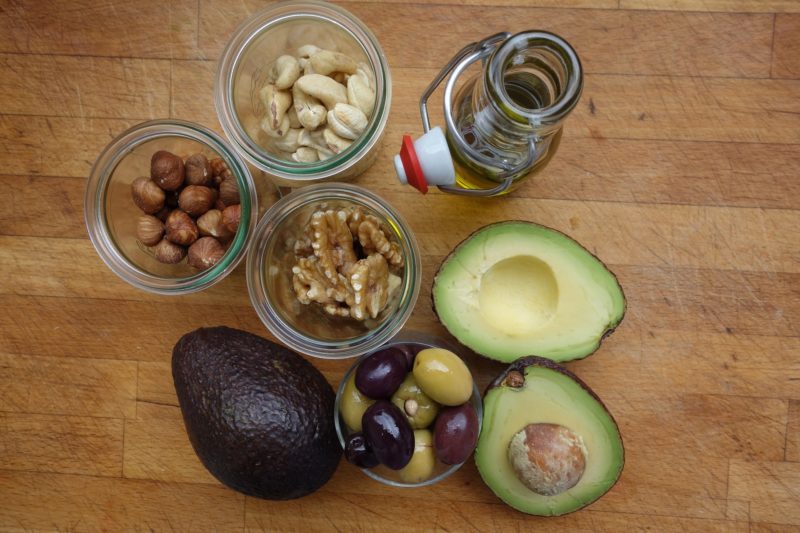
GDM Nutrition Basics: Good Fats

Audio Only
Types of Fats
The best fats are plant-based unsaturated fats (eg. olive oil, canola oil, corn oil).
Animal-based saturated fats are more of a problem (for example, fat in meats, poultry, and butter).
Sometimes cooking can turn a good fat into a bad fat. These are known as trans fats.
It can be helpful to understand the different fat types.
One way to think of good fats and ‘less good’ fats is that good fats are UNSATURATED and ‘less good fats’ are SATURATED.
A lot of ‘good’ fats- or unsaturated fats- come from PLANT sources.
A lot of ‘less good’ – or saturated fats- come from ANIMAL sources.
Monounsaturated
Avocado
Nuts: Peanuts, pistachios, pecans
Olives
Oils: canola, olive and nut (Almonds, Pecans and Hazelnuts)
Polyunsaturated
Omega-3
Fish: salmon, trout, mackerel, sardines, pale canned tuna
Nuts: almonds, pecans, cashews, soy nuts, walnuts
Seeds: chia seeds, ground flaxseed, hemp seeds
Oils: flaxseed, soybean, walnut
Omega-6
Corn
Nuts: pine nuts, pistachios
Seeds: pumpkin, sunflower
Oils: corn, soybean, safflower, sunflower
Saturated
Bacon
Butter, lard, shortening
Cream cheese
Oils: coconut, palm
Trans
Baked goods: doughnuts, cookies
Sweets/candies
Fried foods, pre-packaged foods
Partially hydrogenated margarine
Unsaturated Fats (good ones in moderation) are divided into monounsaturated and polyunsaturated fats.
Unsaturated Fats
Monounsaturated fats can be found in some vegetable oils (like canola and olive oil), avocados, olives, and nuts (pistachios, pecans, peanuts).
These fats are a big part of the Mediterranean diet.
The Mediterranean diet is a ‘dietary pattern’ that has been shown to be helpful in gestational diabetes management. If you like this dietary pattern, it can be a good one to follow.
Monounsaturated Fats
Monounsaturated fats can be found in some vegetable oils (like canola and olive oil), avocados, olives and nuts. These fats are an important part of the Mediterranean diet, which is recommended for its benefits in gestational diabetes management.
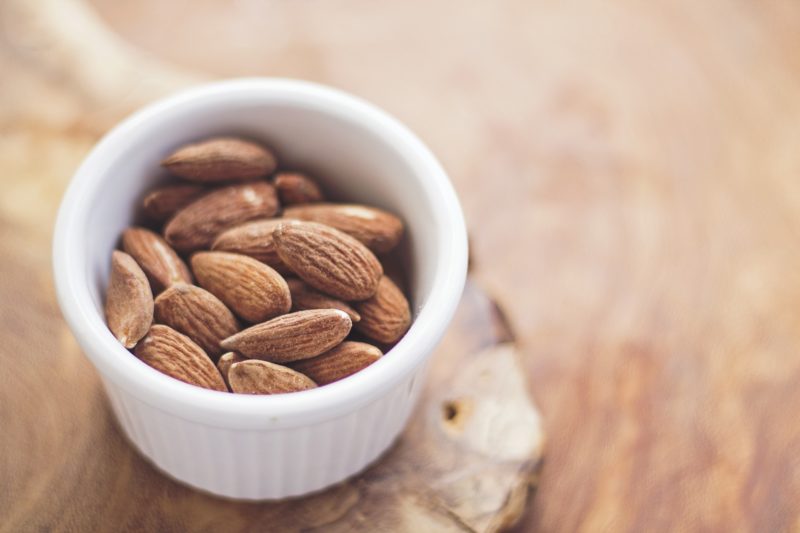
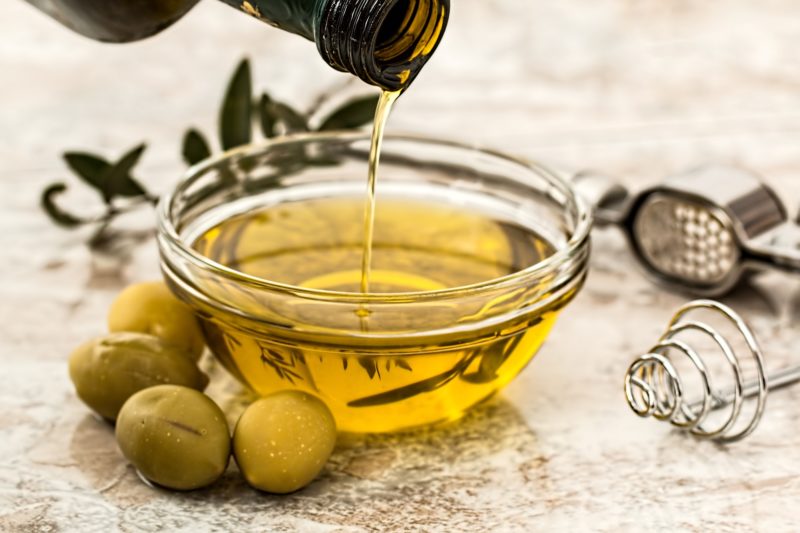
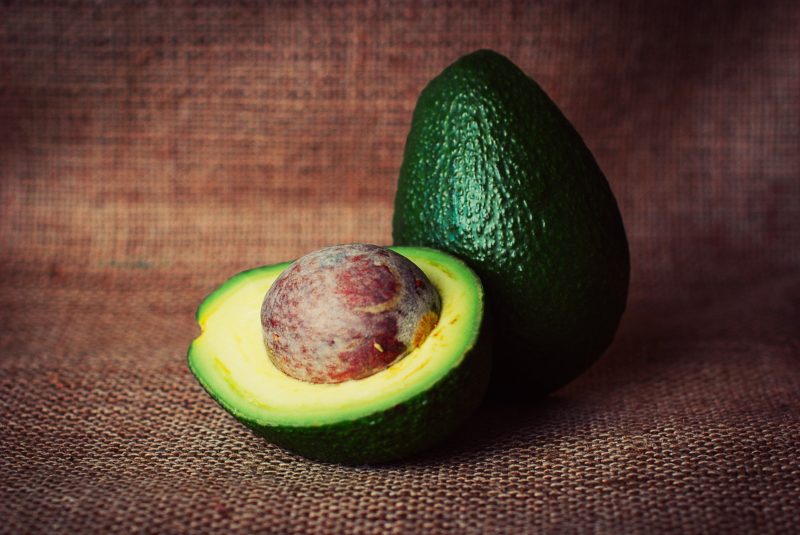
Polyunsaturated Fats
Polyunsaturated fats include Omega-3 or Omega-6.
Omega-3
Omega-3s can be found in fish and nuts.
They help the baby’s brain develop.
You really need to have some of these fats.
Omega-3:
Fish: salmon, trout, mackerel, sardines, pale canned tuna
Nuts: almonds, pecans, cashews, soy nuts, walnuts
Seeds: chia seeds, ground flaxseed, hemp seeds
Oils: flaxseed, soybean, walnut
TIPS:
Consume fresh, frozen or canned fish (like salmon, trout and mackerel) twice per week as they are an excellent source of omega-3 polyunsaturated fats. However, keep an eye out for fish high in mercury (see foods to avoid).
Snack on nuts such as almonds, cashews or walnuts. They are all excellent sources of omega-3 fats and their protein and fibre content help fill you up without spiking up your blood sugar levels [links to portions and snacks].
Make your own vinaigrette with olive, canola or safflower oils and vinegar or lemon juice instead of commercial creamy dressings in your salads.
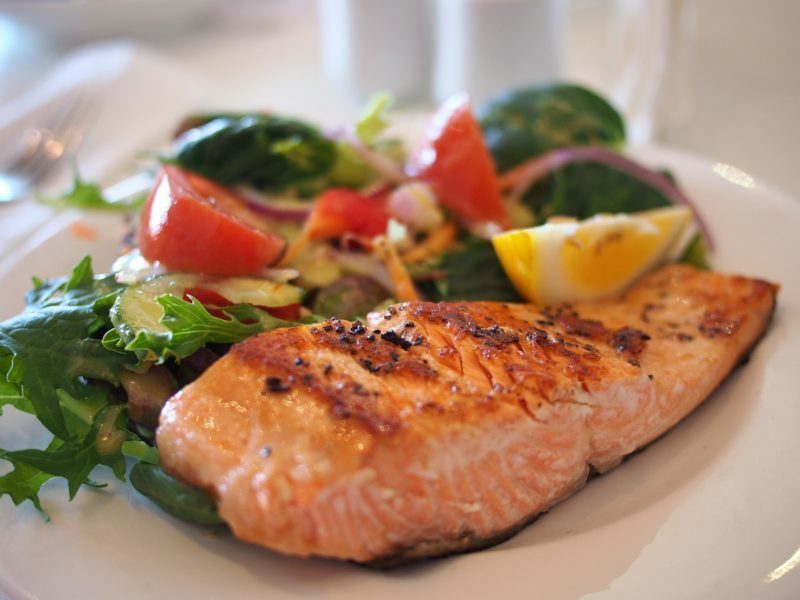
Omega-6
Omega-6 polyunsaturated fats can be found in many vegetable oils (such as safflower oil, corn oil, soybean oil).
Omega-6:
Nuts: pine nuts, pistachios
Seeds: pumpkin, sunflower
Oils: corn, soybean, safflower, sunflower
Saturated Fats
Saturated fats are found in red meat and dairy products. It’s best to limit how much you eat.
Saturated Fats:
Bacon
Butter, lard, shortening
Cream cheese
Oils: coconut, palm
TIPS to limit saturated fats:
- Instead of spreading margarine on your toast replace it with peanut butter.
- Choose lean cut meats (such as loin or round cuts of beef) and trim all visible fats before cooking.
- Replace full-fat dairy with low-fat versions.
Trans Fats
Trans fats are fats that have been processed and are often found in packaged foods. Due to their potential in increasing heart disease risk, they should be avoided. Interestingly enough, these fats are found in poor nutrient containing carbohydrate foods (such as cookies, chips, donuts and muffins). Partially hydrogenated margarine is a major source of trans fats and should also be avoided.
Trans Fats:
Baked good: doughnuts, cookies
Sweets candies
Fried foods, packaged foods
Partially hydrogenated margarine
More Helpful Tips
Use your thumb: In general, to know the right amount of fat to consume during one meal, you can use the tip of your thumb to estimate the recommended serving of fat when cooking for one person

Check the label: Another great way of making healthy choices when it comes to fats is by reading the nutrition facts table at the back of a product. The following example lists the different steps you should be thinking about when considering a product’s fat content:
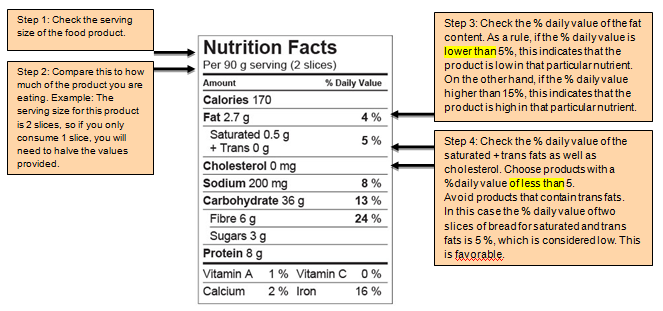
Choose the healthy kind: When cooking, pick unsaturated over saturated fats and limit them to about 1 teaspoon. Remember to avoid trans fats.

